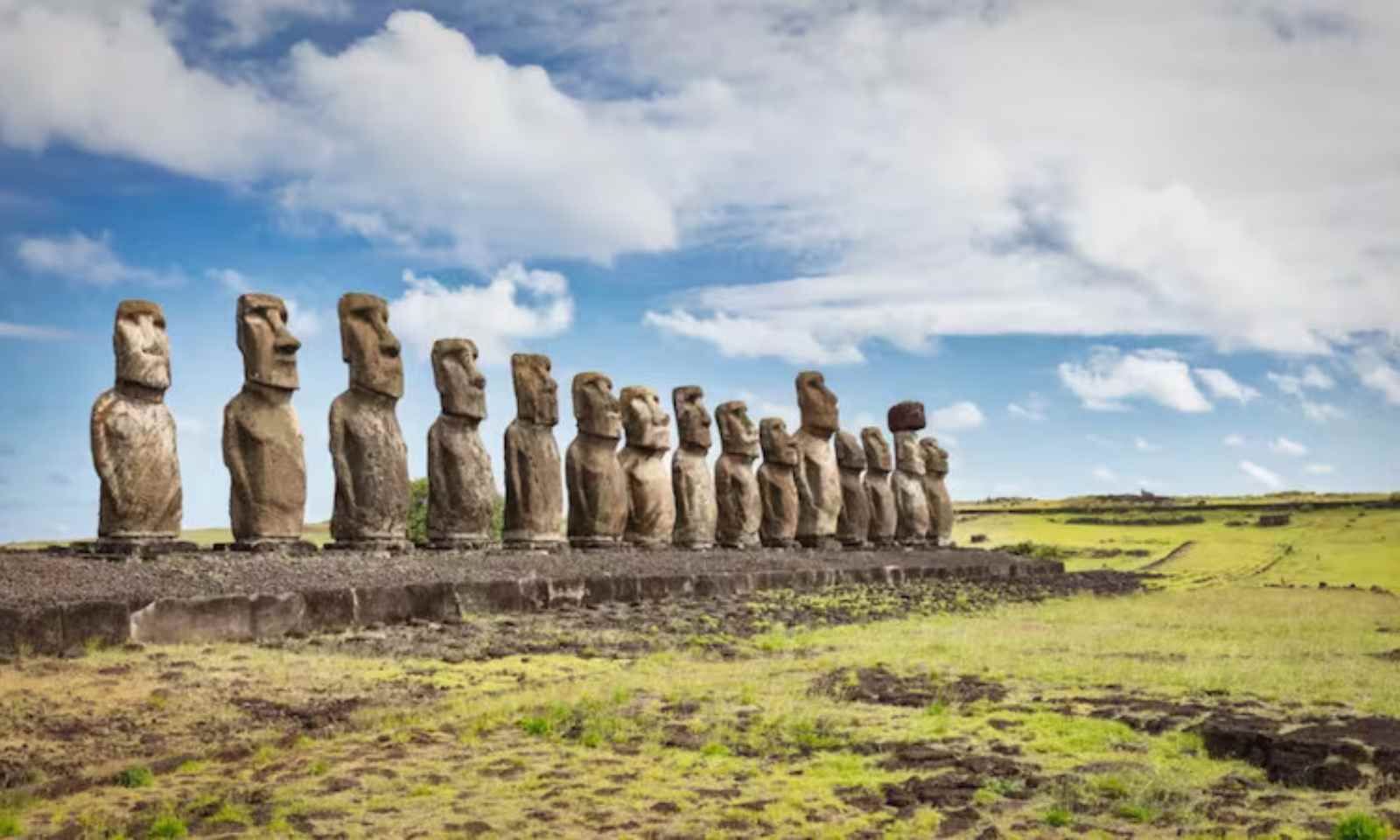

The indigenous people of Rapa Nui.
Photo/ Supplied/ Whakaata Māori
Rapa Nui invites the world to help it grow Cacao beans
Rapa Nui has seen a huge decline in its ecosystem and is hoping for international investment as a solutions to its climate change-related issues.




Musicians warn AI could strip the soul from island sounds

Float First: A message for Pacific families during the holidays



Musicians warn AI could strip the soul from island sounds
The Pacific Island of Rapa Nui (Easter Island) is asking for countries with big pockets to invest in growing cacao beans on the island.
Rapanui has seen a huge decline in its ecosystem and sees this investment as a way to help fund solutions to its climate change issues.
Mana Rapa Nui Foundation president Erity Teave Hey says investments by bigger countries would provide financial support to start building plantations for more food growth.
“We’ve decided to plant coffee, which we recommend for the whole Pacific," he says.
"My foundation has done research, and we found and identified that the Pacific has a lot of coffee and a great variety of premium quality because we have the best weather to plant coffee.”

Rapa Nui is 6,930 km from New Zealand and is one of the most isolated islands in the Pacific. Photo/ Supplied/ Whakaata Māori
The island is one of the most isolated places in the world, at the south-easternmost point of the Polynesian Triangle, and is a province of Chile.
Over 90 per cent of Rapa Nui’s original forests are gone, following centuries of tree cutting to build waka and then houses, leaving no trees to soak up water from rainfall so many areas stay wet.
However, Hey believes that combined with his organisation’s research and big investors, Rapa Nui can be a win-win situation for those who wish to build their coffee industry.
“If somebody likes this idea, we’ll help, we’ll provide help to everybody as far as information at no cost.
“The idea is we develop sustainable development across the Pacific to overcome poverty and build up our economic autonomy.”
Many crops cannot grow in Rapa Nui due to erosion, so the country, which has a population of 7,000, must import food resources from overseas.
However, kumara, yams, taro, bananas, sugarcane and coffee beans thrive in the current climate.
Hey says he hopes money can come in for this idea to help with tourism as 89 per cent of its economy depends on tourism.
Fishing is down to just 10 per cent due to climate change and fishing fleets sweeping the area, which hasn’t made it appealing for tourists to explore the archaeological land.
Over 28 species of marine life in the country’s 700km protected radius has seen 28 species go extinct.
Part of this is due to Rapa Nuis’s proximity to the Great Pacific garbage patch, which also affects birds.
Hey says the burning of fossil fuel contributes a lot to this too, which was a big push from all the Pacific at COP 28, for the world to eliminate this.
“You cannot practise your ancestral culture, which is dependent on those species and seawood, it’s changed now," Hey says.
“We are in adaptation right now. There is no other way, there is only one way to recover and restore all of this, which is for world leaders to commit to stopping fossil fuels, landfills, and throwing plastic in the Pacific to declare us a green and blue zone."
No investments have yet been made since the first pitching of Cacao beans assistance on the last day of COP 28.
This article was first published on Te Ao Māori News.